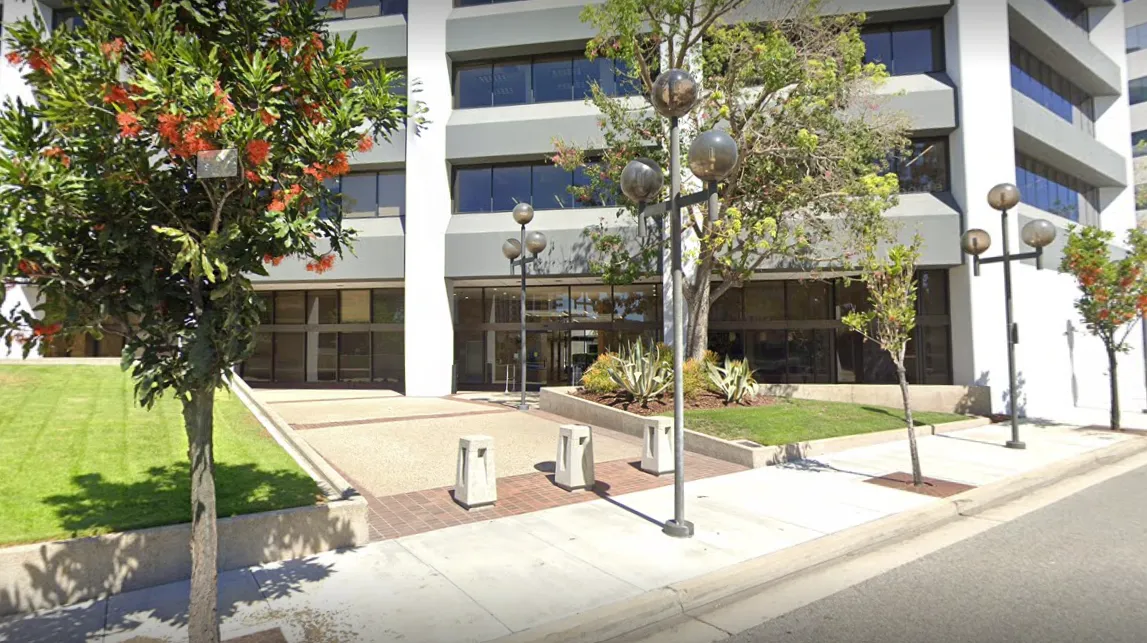Anorexia treatment offers a comprehensive approach to restore physical health and emotional well-being. Programs include medical monitoring, therapy to address body image concerns and perfectionism, and nutritional guidance to rebuild a healthy relationship with food. Support groups and family therapy strengthen the recovery process, fostering connection and long-term success.
Ads
More Info
Advertisement Disclosure
Our website is funded by advertisers who pay for prominently labeled placements.
Read More34 Rehab Centers were found
Filters
Locations
- Los Angeles(+98)
- Culver City(+14)
- Westlake Village(+13)
- Woodland Hills(+11)
- Beverly Hills(+10)
- Santa Monica(+9)
- Sherman Oaks(+7)
- West Hollywood(+6)
- Malibu(+5)
- Chatsworth(+5)
- Pasadena(+5)
- Encino(+5)
- Redondo Beach(+4)
- Lancaster(+4)
- Reseda(+4)
- Studio City(+4)
- Northridge(+3)
- San Mateo(+3)
- Lynwood(+3)
- Vernon(+3)
- Van Nuys(+3)
- Tarzana(+3)
- North Hollywood(+3)
- Glendale(+3)
- Gardena(+3)
- Riverside(+3)
- Granada Hills(+2)
- Shadow Hills(+2)
- Venice(+2)
- Orange County(+2)
- Pomona(+2)
- West Hills(+2)
- Valley Village(+2)
- Burbank(+2)
- Brentwood(+2)
- Long Beach(+2)
- Sun Valley(+1)
- Torrance(+1)
- San Jacinto(+1)
- San Pedro(+1)
- Upland(+1)
- Whittier(+1)
- Toluca Lake(+1)
- Thousand Oaks(+1)
- Simi Valley(+1)
- Mission Viejo(+1)
- Acton(+1)
- Beaumont(+1)
- Wilmington(+1)
- Panorama City(+1)
- Anaheim(+1)
- Laguna Hills(+1)
- Inglewood(+1)
- Alhambra(+1)
- Rosemead(+1)
- Maywood(+1)
- Manhattan Beach(+1)
- Monterey Park(+1)
- Claremont(+1)
- Covina(+1)
- La Puente(+1)
- Pico Rivera(+1)
- San Fernando(+1)
- Azusa(+1)
- Santa Fe Springs(+1)
- Glendora(+1)
- Agoura Hills(+1)
- El Segundo(+1)
- Duarte(+0)
- Sunland(+0)
- Downey(+0)
- Cudahy(+0)
- El Monte(+0)
- Compton(+0)
- Hermosa Beach(+0)
- Cerritos(+0)
- Calabasas(+0)
- Bellflower(+0)
- Bell Gardens(+0)
- Avalon(+0)
- Arcadia(+0)
- Altadena(+0)
- Paramount(+0)
- South El Monte(+0)
- Walnut(+0)
- West Covina(+0)
- Santa Clarita(+0)
- San Gabriel(+0)
- San Dimas(+0)
- Rolling Hills(+0)
- Orange(+0)
- Hawaiian Gardens(+0)
- Palmdale(+0)
- Norwalk(+0)
- Montebello(+0)
- Lakewood(+0)
- South Pasadena(+0)
- Carson(+0)
- Hawthorne(+0)
Conditions
- Drug(+278)
- Alcohol(+219)
- Mental Health(+195)
- Opioid(+193)
- Cocaine(+184)
- Trauma(+180)
- Methamphetamine(+177)
- Benzodiazepines(+174)
- Heroin(+173)
- Prescription Drugs(+159)
- Depression(+152)
- Anxiety(+149)
- Xanax(+145)
- Synthetic Drugs(+138)
- PTSD(+133)
- Adderall(+131)
- Marijuana(+112)
- Bipolar(+109)
- Ecstasy(+104)
- MDMA(+99)
- Behavioral Health(+93)
- LSD(+93)
- Psychedelics(+91)
- Fentanyl(+71)
- Stress(+71)
- OCD(+69)
- Personality Disorders(+63)
- ADHD(+61)
- Gambling(+38)
- Eating Disorders(+35)
- Anorexia(+34)
- Binge Eating Disorder(+34)
- Bulimia(+33)
- Schizophrenia(+32)
- Gaming(+28)
- Internet Addiction(+27)
- Sex Addiction(+25)
- Burnout(+23)
- Pornography(+22)
- Shopping(+10)
- Narcissism(+8)
Insurances
- BlueCross BlueShield(+129)
- Aetna(+126)
- Anthem(+105)
- Cigna(+105)
- United Healthcare(+66)
- Humana(+63)
- Optum(+53)
- Medicaid(+53)
- MHN(+51)
- Magellan Health(+47)
- Kaiser Permanente(+39)
- Medicare(+31)
- GEHA(+31)
- ComPsych(+29)
- Highmark(+25)
- AmeriHealth(+13)
- Tufts Health(+11)
- Oscar(+9)
- CareFirst(+9)
- Molina Healthcare(+8)
- Intermountain Healthcare(+6)
- Beacon Health Options(+2)
- UMR(+2)
- NYSHIP(+2)
- ILWU(+2)
- Geisinger(+2)
- Empire Life(+2)
- Empire BCBS(+2)
- Bright Health(+2)
- GuideWell(+1)
Therapies

$1,50

N/A

$3,200 - 30 days

Call for Rates - 30 days

$35,000 - 30 days

$10,000+ - 30 days
Anorexia Treatment in Los Angeles
Anorexia nervosa is a serious and potentially life-threatening eating disorder characterized by extreme food restriction, an intense fear of weight gain, and a distorted perception of body image. Individuals with anorexia often go to great lengths to control their weight, including excessive exercise, fasting, or using diet pills, despite being underweight or malnourished.
Anorexia is not just about food—it is often rooted in deeper emotional struggles, including perfectionism, low self-esteem, trauma, or anxiety. Without proper treatment, anorexia can lead to severe health complications, including heart failure, osteoporosis, and organ damage.
Los Angeles offers a variety of treatment options for anorexia, ranging from outpatient therapy to intensive residential programs designed to help individuals regain a healthy relationship with food and body image.
Understanding Anorexia and Its Psychological Impact
Anorexia is not just about losing weight—it is about control, fear, and self-worth. Many individuals with anorexia feel an intense pressure to achieve unrealistic body standards, often influenced by societal expectations, personal perfectionism, or past trauma.
Some key psychological traits associated with anorexia include:
- Distorted body image: Seeing oneself as overweight, even when dangerously underweight.
- Extreme fear of weight gain: Avoiding food to maintain a perceived sense of control.
- Rigid thinking patterns: Viewing food as "good" or "bad" and struggling with flexibility in eating habits.
- Obsessive behaviors around food: Counting calories excessively, hiding food, or developing strict eating rituals.
- Emotional avoidance: Using food restriction as a way to suppress difficult emotions.
Because anorexia affects both mental and physical health, treatment must address both aspects for long-term recovery.
When to Seek Treatment for Anorexia
Anorexia is a progressive disorder, meaning symptoms tend to worsen over time. Seeking treatment early improves the chances of a full recovery and reduces the risk of severe health complications.
Signs that professional help is needed include:
- Rapid or extreme weight loss
- Avoidance of meals and social eating situations
- Fixation on calories, dieting, or body weight
- Frequent dizziness, fainting, or cold sensitivity due to malnutrition
- Irregular menstrual cycles or loss of menstruation
- Obsessive exercise routines, even when injured or exhausted
- Increased anxiety or depression related to food and body image
If anorexia goes untreated, it can lead to long-term health consequences, including muscle loss, heart complications, and weakened bones.
Treatment Approaches for Anorexia
Since anorexia is both a mental and physical illness, treatment requires a multidisciplinary approach involving medical, nutritional, and psychological care.
Medical Stabilization is often the first step for individuals with severe malnutrition. Many treatment centers in Los Angeles offer inpatient programs where medical professionals monitor weight restoration and address immediate health risks.
Cognitive Behavioral Therapy (CBT) helps individuals identify and challenge irrational fears surrounding food and body image. Therapy focuses on changing destructive thought patterns and developing healthier coping strategies.
Family-Based Therapy (FBT) is especially effective for adolescents and young adults with anorexia. This approach involves parents or caregivers taking an active role in re-establishing healthy eating behaviors.
Nutritional Counseling helps individuals rebuild trust with food by creating balanced, non-restrictive meal plans. Many dietitians work closely with therapists to address the emotional aspects of eating.
Exposure Therapy helps individuals gradually reintroduce foods they fear, reducing anxiety around eating. Over time, exposure to previously "forbidden" foods helps normalize eating habits.
Medication Management may be used to treat co-occurring conditions such as anxiety, depression, or obsessive-compulsive disorder (OCD), which often contribute to anorexia.
For severe cases, residential or inpatient treatment programs provide structured, 24/7 care in a supportive environment where individuals can focus fully on recovery.
Overcoming the Fear of Weight Gain
One of the biggest challenges in anorexia recovery is learning to accept a changing body. Many individuals fear that weight gain equates to losing control, but therapy helps reframe this mindset.
Some key techniques used in treatment include:
- Body neutrality practices: Shifting the focus from appearance to overall well-being.
- Challenging negative self-talk: Recognizing distorted thoughts and replacing them with more balanced perspectives.
- Developing a sense of identity outside of weight and appearance.
- Building self-compassion: Understanding that self-worth is not defined by body size.
Healing from anorexia involves learning to trust the body, respect its needs, and find fulfillment beyond weight and food control.
Long-Term Recovery and Relapse Prevention
Since anorexia has one of the highest relapse rates among mental health disorders, ongoing support is essential. Many individuals continue therapy, work with nutritionists, or join support groups to maintain progress.
Some key relapse prevention strategies include:
- Recognizing early warning signs of restrictive thinking.
- Avoiding diet culture and unrealistic body standards.
- Practicing intuitive eating rather than strict food rules.
- Engaging in activities that bring joy and fulfillment beyond weight control.
Many individuals find strength in connecting with others who have recovered from anorexia, as shared experiences can provide hope and encouragement.
Finding Anorexia Treatment in Los Angeles
Los Angeles has a wide range of specialized eating disorder treatment centers, including outpatient therapy, intensive day programs, and inpatient facilities for those needing medical stabilization.
Seeking help from an anorexia specialist is the first step toward healing. Many clinics offer free consultations to help individuals determine the best treatment plan based on their unique needs.
Frequently Asked Questions
Is anorexia just about wanting to be thin?
Can someone have anorexia even if they are not underweight?
How long does anorexia treatment take?
What is the difference between inpatient and outpatient anorexia treatment?
Ads
More Info
Advertisement Disclosure
Our website is funded by advertisers who pay for prominently labeled placements.
Read More







































